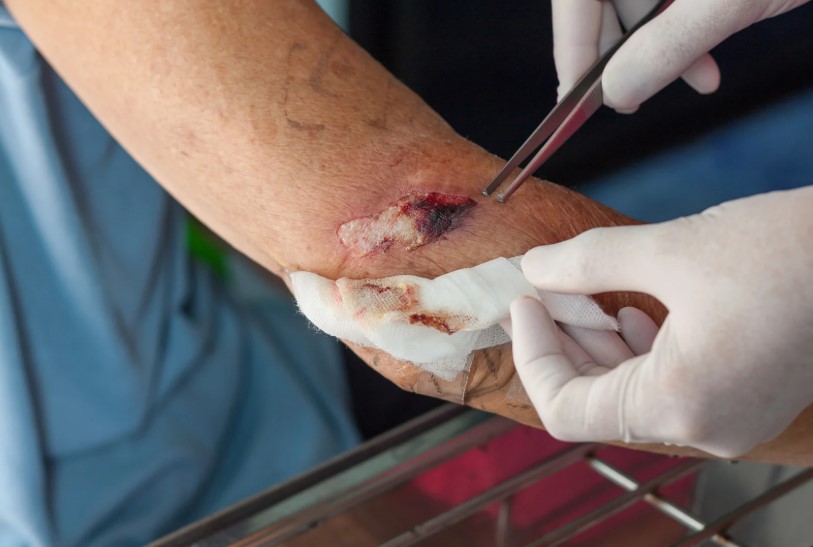Understanding the Role of a Specialist Doctor for Wounds
A specialist doctor for wounds is a medical professional with advanced training in diagnosing, treating, and managing different types of wounds. Unlike a general physician who may only provide basic wound care, a wound care specialist applies targeted methods designed for complex cases. These doctors are skilled in identifying the underlying causes that prevent wounds from healing, such as circulation issues, infections, or chronic illnesses like diabetes. Their expertise ensures that patients receive care tailored to their condition rather than just a temporary fix. They also work closely with other healthcare providers to address systemic health problems contributing to delayed healing. Because wounds can often lead to serious complications if not managed properly, having access to a specialist increases the chances of complete and safe recovery. For patients struggling with persistent wounds, this type of doctor often becomes a vital part of their long-term health team.
Types of Wounds That Require a Specialist Doctor for Wounds
Not all wounds are the same, and certain types require specialized attention to prevent complications. Chronic wounds, such as diabetic foot ulcers, venous ulcers, and pressure sores, often fail to heal without expert care. These wounds can worsen over time and lead to severe infections if neglected. Acute wounds like burns, traumatic injuries, and surgical wounds may also need the expertise of a wound specialist, especially when healing does not progress as expected. A wound that remains open for more than a few weeks should always be assessed by a doctor trained in wound care. Common warning signs include increased pain, swelling, drainage, or foul odor. Even small wounds can become dangerous in individuals with underlying health conditions. A specialist can provide a personalized treatment plan that helps prevent deterioration and improves the chance of full recovery.
Why Specialized Wound Care Matters for Recovery
Specialized wound care is essential because untreated or poorly managed wounds can lead to serious complications. A wound that is not healing properly is at high risk of infection, which can spread to other parts of the body and even become life-threatening. By working with a specialist doctor for wounds, patients benefit from advanced techniques that reduce healing time. Faster recovery means patients experience less pain, avoid repeated hospital visits, and can return to normal life sooner. Another advantage is the reduction in long-term scarring and disfigurement, which can impact emotional well-being. For individuals with conditions such as diabetes or vascular disease, specialized care also helps prevent amputations and other severe outcomes. In addition, wound specialists focus on comfort, ensuring that treatment is not only effective but also supportive of the patient’s overall health. Choosing specialized care is one of the best steps toward achieving a safer, more effective recovery.
Techniques and Treatments Used by a Specialist Doctor for Wounds
A specialist doctor for wounds has access to a wide range of modern techniques designed to promote faster and safer healing. One common method is debridement, which involves removing dead or infected tissue so healthy tissue can grow. Advanced dressings, including antimicrobial or moisture-balancing options, are also used to create the optimal environment for healing. In more complex cases, negative pressure wound therapy, sometimes called a wound vacuum, is applied to stimulate tissue growth and remove excess fluids. Hyperbaric oxygen therapy may also be recommended for chronic wounds, as it increases oxygen supply to tissues and accelerates recovery. Technology such as laser therapy, bioengineered skin substitutes, and growth factor treatments are additional tools in a specialist’s arsenal. These advanced approaches go far beyond the basic wound dressing available at home or in a standard clinic. Patients benefit from treatments that address both the wound itself and the factors preventing it from closing.
Multidisciplinary Approach in Wound Management
Healing complex wounds often requires more than one medical perspective. A specialist doctor for wounds typically works within a multidisciplinary team to provide the most comprehensive care possible. Nurses trained in wound care assist with daily management and dressing changes. Nutritionists play an important role in ensuring that patients receive the vitamins and minerals necessary for tissue repair. Physical therapists may be involved in restoring mobility and preventing further pressure injuries. In cases involving diabetes or vascular conditions, endocrinologists and vascular surgeons may also contribute to the treatment plan. This collaborative approach ensures that all factors influencing wound healing are addressed. Patients not only receive direct wound treatment but also benefit from care that improves their overall health. This team-based method increases the chances of long-term healing and reduces the risk of wounds reappearing.
When to Seek Help from a Specialist Doctor for Wounds
Knowing when to seek expert care can make a huge difference in recovery. Any wound that has not healed within two to four weeks should be evaluated by a specialist. Warning signs such as redness, swelling, persistent pain, excessive drainage, or foul odor indicate possible infection and require immediate attention. People with diabetes, poor circulation, or compromised immune systems should see a specialist doctor for wounds sooner rather than later. Even a minor cut or blister in these individuals can become a serious problem if not treated properly. Post-surgical wounds that are not closing or that reopen after stitches are removed also need professional assessment. Delaying specialist care can lead to complications such as severe infections, tissue death, or the need for surgical intervention. Seeking expert treatment at the first sign of trouble ensures better outcomes and a safer recovery process.
Benefits of Early Intervention with a Specialist Doctor for Wounds
Acting early can mean the difference between a quick recovery and a prolonged, complicated healing process. When patients seek care from a wound specialist at the first sign of trouble, they benefit from advanced therapies that shorten healing time. Early intervention reduces the chance of infection spreading or becoming systemic, which can be life-threatening. Patients also experience less pain overall because treatment targets the root cause of the wound. Another key advantage is reduced scarring and improved cosmetic results, which can boost self-confidence. From a financial perspective, early care is often more cost-effective than dealing with long hospital stays or surgical treatments later on. Preventing severe complications also lowers the risk of amputation in patients with chronic conditions like diabetes. By choosing to act quickly, patients give themselves the best possible chance at a safe and complete recovery.
Choosing the Right Specialist Doctor for Wounds
Selecting the right doctor is a critical step in the healing journey. Patients should look for a specialist with board certification and experience in wound management. Training in areas such as vascular surgery, podiatry, or internal medicine often complements wound care expertise. Asking about success rates, available treatments, and experience with similar cases can help ensure a good match. A specialist who works within a hospital or a wound care center may also have access to advanced technology and a multidisciplinary team. Communication is another important factor—patients should feel comfortable asking questions and receiving clear explanations. Reviewing patient testimonials and checking whether treatments are covered by insurance can also be helpful. Taking the time to choose the right professional ensures that the patient receives not just treatment, but compassionate, effective care tailored to their needs.
The Role of Patient Education in Wound Healing
While a specialist doctor for wounds provides expert treatment, patient involvement is equally important in ensuring recovery. Proper wound care at home, including following instructions on dressing changes and hygiene, is critical. Patients must also learn to identify warning signs that indicate complications, such as increasing redness or unusual drainage. Lifestyle changes often play a big role in healing—balanced nutrition, staying hydrated, and quitting smoking all help wounds close more effectively. For those with diabetes, keeping blood sugar levels under control is essential. Regular exercise and maintaining good circulation also support tissue repair. Education empowers patients to take an active role in their own recovery, which can improve outcomes and reduce the likelihood of future wounds. By combining expert treatment with personal responsibility, healing becomes a shared process between doctor and patient.
Frequently Asked Questions (FAQ)
What is the difference between a wound care nurse and a wound care doctor?
A wound care nurse is trained to provide ongoing management, dressing changes, and monitoring of healing, while a specialist doctor for wounds is a physician with advanced training who diagnoses, prescribes treatments, and performs medical or surgical interventions when necessary.
How do I know if I need to see a specialist doctor for wounds?
If a wound has not healed within a few weeks, shows signs of infection, or keeps reopening, it is important to seek professional care. Individuals with chronic conditions like diabetes should seek care even sooner.
Are treatments from a wound care specialist covered by insurance?
Most insurance plans cover wound care specialist visits, especially if the wound is related to a chronic condition or surgery. Coverage may vary, so it’s best to check with your provider.
How long does it usually take for wounds to heal under specialist care?
Healing time depends on the severity and type of wound, as well as the patient’s overall health. With specialist treatment, many wounds heal faster and more effectively than with standard care alone.
Can a wound care specialist help with scars after healing?
Yes, many specialists offer treatments to minimize scarring, including advanced dressings, laser therapy, and skin substitutes that support better cosmetic outcomes.






